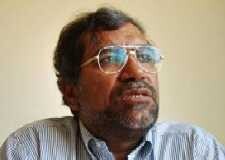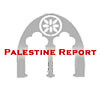Palestine Report 7 August 2004

Khalil Shikaki
PR: We’ve seen a lot of unrest both in the Gaza Strip and the West Bank. To what extent are these related and how do they differ?
Shikaki: Well, to a large extent what we are seeing is a breakdown of law and order. This breakdown is being exploited by different actors, young guards in particular who have a special interest in weakening the control of the old guard, particularly in Gaza, before the Israeli pull-out from Gaza.
PR: So do you think what is happening in the two areas are part of the same phenomenon?
Shikaki: It is, partly, although I would say that in Gaza there are more deliberate intentions than in the West Bank in some of what is taking place.
PR: How acute do you think the problem is?
Shikaki: It’s not very acute. I think what we are seeing is one episode in many that will follow. There is a very serious problem within the Palestinian political system. We have a significant component of Palestinian national activists who feel they have been marginalized during the last decade of the peace process, and that they have been marginalized by the old guard in the nationalist movement, and [this component] have exploited the last four years of the Intifada.
PR: You talk about this as a struggle between a “new guard” and an “old guard.” What would be the ramifications of a victory for either side?
Shikaki: I think it is very clear that if the young guards are unable this time to gain the kind of primacy they seek in the Palestinian political system, particularly in Gaza, that they will have an interest in the continuation of violence in Gaza and from Gaza, because only through the continuation of violence can they continue to arm themselves and form militias. It is through these means that they have been able during the last three or four years to assert themselves. If they lose that, when the Israelis pull out from Gaza they become much weaker and the old guard can easily marginalize them again. So they have a very strong incentive in preventing it.
On the other hand, the old guard is in control and if they lose out to the young guards, the Palestinian political system will enter into a state of turmoil, because the young guards lack clear leadership and clear vision and there could be a lot of internal infighting among different factions and warlords among the young guard. But the eventual outcome could be that the Palestinian political system is opened up and the possibility of holding elections could be strengthened, while the possibility that the Palestinians will have a better negotiating position vis-a-vis Israel would also be strengthened.
PR: You mention elections. Do you see elections as a way out of the current turmoil?
Shikaki: I do not see any other way to get out of the current internal turmoil on the one hand, and to get out of the current Israeli-Palestinian impasse on the other. Elections provide the means, I believe, to bring about immediate stability in the domestic scene putting an end to the current power struggle, and it could also bring stability in Israeli-Palestinian relations, because it is, I believe, the only means to gain acceptance for a ceasefire from the different factions.
PR: But to what extent do you think elections are feasible at the moment? In addition to logistical problems, what can those who seek to be elected promise people at this stage?
Shikaki: On the technical level I do not see this as a problem. I believe elections can be held three months from today and that the infrastructure to do so is already in place. The main difficulty is in voter registration, which can start immediately. Officially, it will start in early September, but there is no reason it cannot start immediately. However it happens, if we do start the process in September as planned, by December we should have in place a voter register that can then allow elections to take place immediately.
Now, the real difficulty is political. The old guard has an interest in postponing the elections as long as possible because they will come out as losers. They will be replaced by young guard nationalists in the parliament, and they will do their best to prevent it. That’s why [President Yasser] Arafat will continue, in my view, to oppose elections.
The second problem is the Americans. The Americans will not allow - at least that’s their position today - elections for president, because they do not want Arafat to get re-elected and it is certain that these elections will lead to his re-election.
And thirdly, there are the Israelis. The Israelis would be required to pull out of the cities and to remove checkpoints so the election campaign can start. But the Israelis are reluctant to do that, because they like the situation today where even though they are in control of security in the Palestinian areas, they in fact are not taking official responsibility for the Palestinian people. They would like to continue to enjoy this privilege, and therefore they will continue to oppose elections until they reach a point where they are convinced elections will lead to an end to the violence against them, and the elections don’t by themselves provide that guarantee.
PR: So you don’t sound very hopeful that elections can take place?
Shikaki: I think it’s a matter of political will. The choices in front of the old guard, the Americans and the Israelis are not very many. If they do not take the risk of elections, the risks involved in all other alternatives are much worse for everyone.
PR: What is the role of the Islamist parties in all of this?
Shikaki: There are two basic divisions within Palestinian society. Within the nationalist camp, it’s between the young guard and the old guard. Within the wider society, it’s between the Islamists and the nationalists. During the last four years, because of the Intifada, the divisions along the nationalist-Islamist lines have been blurred, because nationalist young guards and Islamists have made an alliance to fight the Israelis, in which both help each other. As a result, the Islamists gained prominence in Palestinian society and the young guards gained prominence vis-a-vis the old guard, and that satisfies both parties.
There is no doubt that the Islamists are watching what is happening in terms of the turmoil involving the nationalists, because based on the outcome they will have to determine with whom they will go, especially in Gaza.



